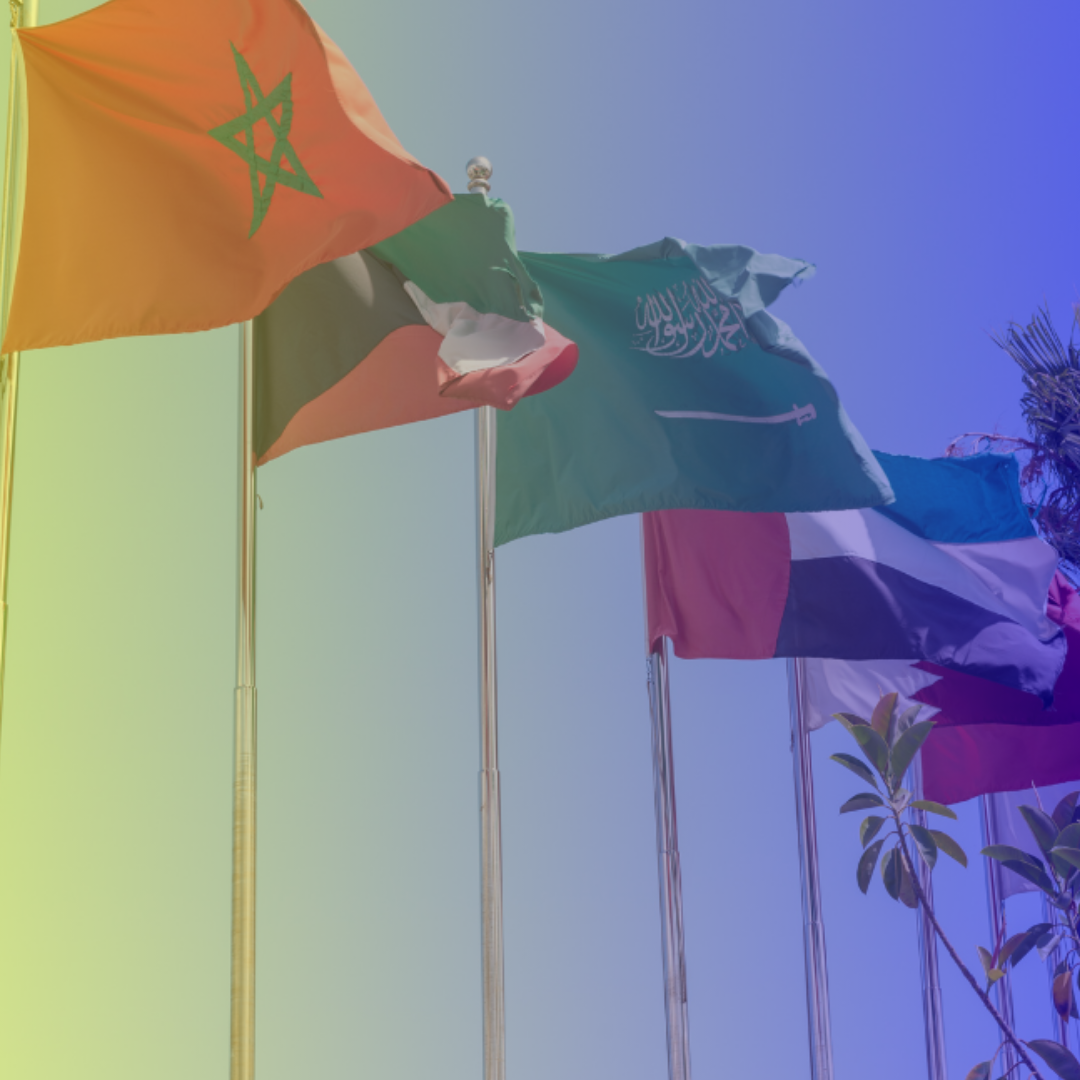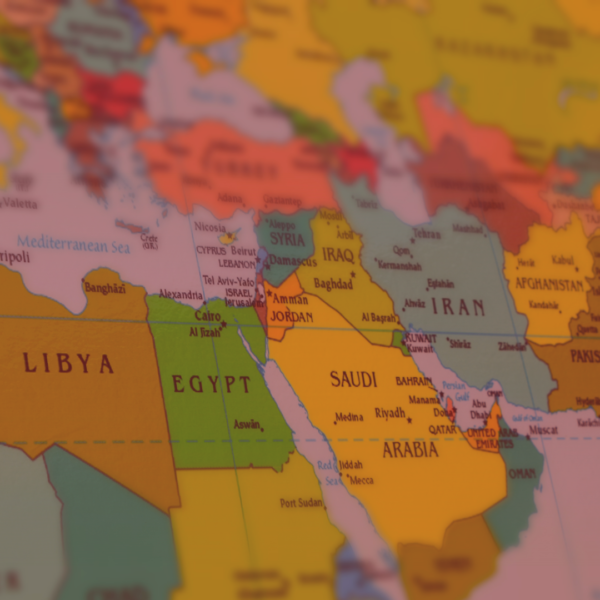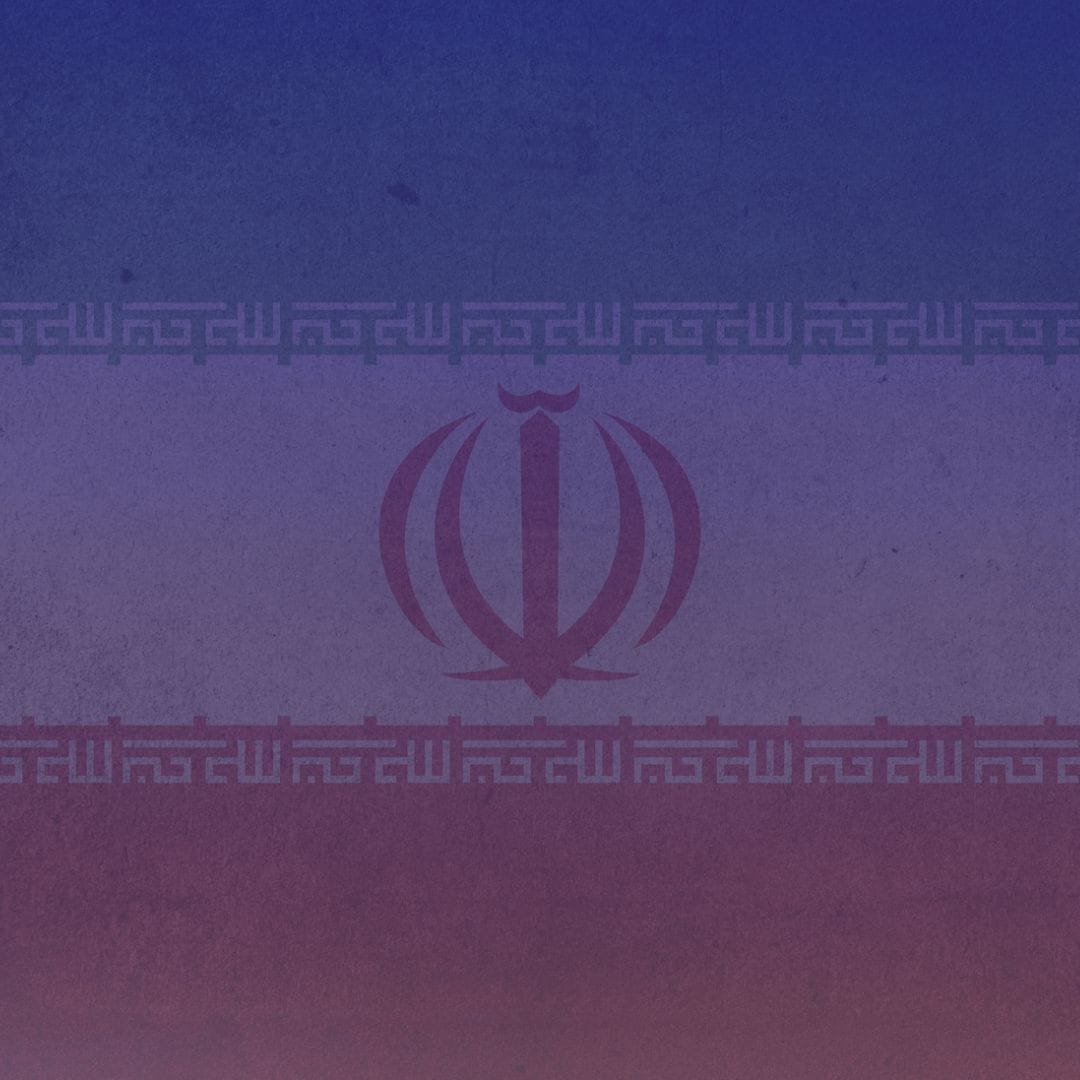
Written by Blanca Gonzalez, Pablo Pastor Vidal, Hafssa Fakher Elabiari, Isabela Mariano, Andrea Aznar Maciá and Fatin Boualite
2023 has been a tumultuous and challenging year for the Middle East and North Africa (MENA). Natural hazards have strained and tested Türkiye, Syria, Morocco and Libya, while a crackdown on Iranian women and protestors has long dominated the Western coverage of the region. If the Iranian-Saudi rapprochement has somewhat alluded to a near peaceful regional outlook, the Hamas-Israeli war has pushed the MENA back to instability, tensions and possible regional escalations.
With the start of 2024, the MENA region is destined to be under the world’s spotlight, topping the European Union (EU)’s external agenda in 2024. The war in Gaza and the protests scattered throughout the region are expected to continue. The erosion of human rights and growing migratory flows are likely to keep fuelling authoritarianism in the region amid crucial electoral appointments. Therefore, 2024 already marks a critical juncture in the MENA’s trajectory, but what are the 5 countries to watch?
Tunisia: Elections through democratic backsliding and the migration crisis
Since 2021, Kais Saied’s power grab and centralisation manoeuvres, legitimised through a poorly-voted constitutional reform, have been rolling back the country’s democratic achievements. From suffocating civil society to detaining prominent figures, it has become evident that power has been subordinate to the will of the President (Arbi, 2023), with domestic indicators such as accountability and freedom of expression deteriorating (Coppedge et al., 2023), drawing a bleak future for the country once labelled as an “Arab Anomaly” (Masri, 2017).
In 2024, the recovery of economic indicators will neither be an easy task, nor a likely one. The Tunisian economy has not yet recovered from the Covid-19 pandemic, and it remains vulnerable to the drought of external financing, also considering Saied’s move to refuse a $1.9 billion bailout programme from the International Monetary Fund (IMF) (Pavia, 2023). Food shortages persist, inflation remains high, and unemployment pushes many Tunisians to seek opportunities overseas (World Bank, 2023). Added to this are the increasing debt levels, which are expected to rise by 40% by 2024 for the external component (Amara, 2023), and the potential outbreak of a banking crisis that would fatally threaten domestic financing flows, too, paving the way to an unavoidable default.
With Tunisia being a departure, transit, and arrival country, migration will continue to shape its external relations, particularly vis-à-vis the EU. In 2023, the Tunis-Brussels partnership took a step forward with the conclusion of the well-known and widely criticised pact on migration (Speakman Cordall, 2023). Despite disagreements and setbacks in the disbursement phase, Tunisia will remain a pivotal actor in the EU’s border externalisation policy in this upcoming year 2024. However, human rights organisations have been raising their voices against arbitrary detentions, repatriations, and inhumane treatment (HRW, 2023a), which will have to be tackled by either Tunisia or the EU.
Finally, Tunisian presidential elections are scheduled for December 2024. They grant a five-year term to the winning candidate and are held concurrently with local and regional elections. These latter ballots will be used to form a new legislative body, the National Council of Regions and Districts, which emerged after recent reforms in the country’s democratic structure. Political apathy, distrust in the institutions and general discontent are paramount and expected to continue rising (Bajec, 2023). The specifics of the election, such as their format and date, are still uncertain, but what is clear is that through them, the Tunisian nation furthers its march along a somewhat obscure path.
Iran: Juggling elections, political unrest and nuclear shadows
The year 2024 is not expected to be a walk in the park for the Islamic Republic of Iran (IRI), either. Over the past years, growing economic challenges and grievances have caused political turmoil, shrinking the regime’s legitimacy. While 83-year-old Supreme Leader Ali Khamenei continues to rely on force as the sole recipe for regime survival, his succession will be a consequential matter in the following years (Hussain, 2022).
In March 2024, Iranians are expected to place their votes for the Assembly of Experts and the National Assembly (Majlis), two institutions with no real policy influence in the eyes of the people (Carmi, 2023). Therefore, voter turnout is foreseen to be extremely low, as on previous occasions (Iran Data Portal, 2021). Nonetheless, these elections will give crucial insights on Khamenei’s intentions regarding the current state concerns and the IRI’s condition.
Iran is struggling with the worst economic crisis in its modern history. Inflation surpassed 50% in 2023 (Iran International, 2023), unemployment has become a chronic issue, especially among young people, and more than half of the population lives below the poverty line (Semati, 2023). This context, along with strict freedom constraints and the death of Mahsa Amini in 2022, fuelled a wave of mass protests and social unrest that put Iran in the international spotlight. While the Women, Life, Freedom movement may seem to have lost momentum due to ramped-up repression, civil disobedience continues, and further demonstrations may arise in 2024, challenging the regime (Rezaei, 2023).
With regard to its external dimension, Iran’s president Ebrahim Raisi has strategically expanded the country’s alliances by improving relations with neighbouring countries and strengthening ties with regional and global powers (Zaccara, 2023). Notably, he mended diplomatic ties with Saudi Arabia, and fortified political and economic relations with China and Russia (Shahidsaless, 2023). Moreover, he backed Syria’s reacceptance into the Arab League, proving a resistive ability to navigate even the most difficult waters, notwithstanding international isolation. Iran’s recent admission into the Shanghai Cooperation Organization (SCO) and the BRICS, highlights a shift away from longstanding nuclear-centric diplomacy and showcases the role that the country still embodies in the international arena (Mehdi, 2023). Raisi’s foreign policy approach might become a key electoral asset in the future, although one of the challenges ahead would be to convert diplomatic wins into socio-economic prosperity and domestic stability.
Turning to the country’s most debated issue: Although a US-Iran nuclear rapprochement seemed to be possible after a successful hostage deal in September 2023, Iran has shown little improvement in 2023 and it took minimal steps to promote transparency. Considering the Gaza war, any slim possibility of reopening discussions in 2024 with Iran on the surveillance of nuclear technologies seems to have dwindled to zero. The nuclear deal will be just one of the many aspects that will keep the international eye set on the Iranian nation this 2024.
UAE in Review: Assessing Global Engagement and Charting Pragmatism
2023 was momentous for the United Arab Emirates (UAE): from staging the 28th UN Conference of the Parties (COP) and being nominated to be part of the BRICS, to fulfilling strategic economic moves with Asian and African partners. Now, the groundwork for 2024 is set to be equally hectic.
As the COP28 climate summit drew to a close, the UAE left with the prestige of having held discussions to address climate change (UNFCCC, 2023). The summit took place in one of the world’s top oil-producing countries, with Sultan al-Jaber, head of the state-owned oil company, being appointed COP28 President. The oil company is projected to promptly grow production in the next years, whilst reports indicated that the UAE sought to take advantage of its role as COP28 chair to negotiate additional energy deals for the future (Euronews, 2023). The summit is bound to offer an opportunity for global progress, albeit data prove that countries continue to fail in advancing at the pace required to fulfil the Paris objectives (Poynting, 2023).
In terms of foreign policy, the UAE continues to strengthen its global ties. Just like Iran, the UAE was one of the few selected to join the BRICS, fuelling speculation that the group may become a major opponent to the Group of Seven (G7) (Janardhan & Baharoon, 2023). Abu Dhabi will bring considerable economic and financial weight to the organisation, enhancing its value at the global scale starting from 2024. From the Emirati perspective, membership in the group is mutually beneficial, as it intends to increase dialogue with non-Western countries and widen its economic and political partnerships (Jamal, 2023).
Economically, being a rising contender for economic supremacy with neighbouring Saudi Arabia has prompted the UAE to pursue bilateral trade accords outside of the regional Gulf Cooperation Council (GCC) (Hussein, 2023). Gulf countries have made substantial investments in Africa, with the UAE leading the way. Financial services, transportation and warehousing, and ICT are among the sectors being targeted, and the UAE has already spent around 60 billion dollars in the African continent, exhibiting a strategic aptitude to turn energy resources into economic and geopolitical influence (Middle East Monitor, 2023). Furthering its economic ambitions, Abu Dhabi aspires to become a global supply chain leader through 2024, leveraging the India-Middle East-Europe Economic Corridor (IMEC), unveiled as an alternative to the Chinese Belt Road Initiative (BRI) during the G20 Summit. The IMEC will be made up of two distinct corridors: an east corridor linking India to the Arabian Gulf and a northern corridor connecting the Arabian Gulf to Europe (Cafiero, 2023a).
However, the war in Gaza could pose an obstacle to the realisation of the IMEC, especially the transit of the corridor through the Levant (Khan, 2023). Given the present circumstances, it is increasingly likely that this project will be put on hold in 2024, with an uncertain prospect of resumption in the future. Nevertheless, the war has not only harmed this initiative, but it has also put a strain on Middle Eastern countries, including the UAE, which signed the Abraham Accords in 2020 (Cafiero, 2023b). In 2024, the UAE is likely to have a more difficult time balancing its actions and carefully weighing each decision.
Türkiye: Seizing Opportunities and Navigating Regional Challenges
The year 2023 was challenging for Türkiye. The earthquake uncovered structural problems that put the AK Party in the spotlight while boosting the Republican People’s Party’s (CHP) confidence to win the presidency. However, Recep Tayyip Erdoğan defied the odds, strengthening his power grip and crushing the hopes of Turks who voted for change. The fact that he appointed shrewd faces to cure the double-digit inflation and low purchasing power did not make up for his authoritarianism. What to expect in 2024?
Following his re-election, Erdogan became willing to pursue an orthodox monetary policy. He designated Mehmet Şimşek as finance minister, and Hafize Gaye Erkan as central bank governor to invigorate the economy (Kozok & Akman, 2023). A fundamental pillar of the new policy is enacting interest rate hikes to tackle rising inflation. This approach has yielded marginal results that cannot lift up the depreciated Lira overnight (Central Bank of the Republic of Türkiye, 2023). So, Türkiye will continue wrestling with the economic crisis.
In foreign affairs, the appointment of Hakan Fidan, the ex-head of intelligence, marked a slight shift in Turkish foreign policy from confrontation to pragmatism. This change is rooted in the ‘Century of Türkiye’ vision, and it will translate into recalibration in foreign relations (T.C. Dışişleri Bakanlığı, 2023).
During the Vilnius Summit, Erdogan endorsed Sweden’s NATO membership, while simultaneously conditioning the NATO ratification on Washington’s approval of an F-16 deal. This blackmail diplomacy grants Türkiye leverage while placing Sweden in limbo, especially amid the divergence between Washington and Ankara on the Gaza war.
With Greece, Türkiye has been alluding to a potential rapprochement. In the next months, diplomatic visits will be critical to build trust between Ankara and Athens. Furthermore, Türkiye will be less confrontational with its European allies. Indeed, EU-Türkiye relations beget mutual opportunities to navigate geopolitical challenges.
Regionally, Türkiye will continue fostering economic relations with its rich neighbours in the Gulf. Especially amid security imperatives that drain Ankara’s budget, enhanced economic cooperation with Saudi Arabia, Qatar, and the UAE will benefit Ankara’s sluggish economy. In the Levant, the Gaza war highlights the similarities between Ankara and Tehran, including their stance on Hamas and their opposition to Washington’s approach (Adar & Azizi, 2023). This convergence may set the stage for the two countries to navigate several files, including the release of civilian hostages held by Hamas. However, it is uncertain that Ankara alone will play a role that matches its diplomatic calibre.
With Bashar al-Assad, the prospects of normalisation are thin as Ankara and Damascus have irreconcilable demands (Çevik, 2023). In its backyard, the Kurdistan Workers’ Party (PKK) and the People’s Protection Units (YPG) will continue to be Türkiye’s Achilles heel. In October 2023, the National Assembly voted for a two-year extension of cross-border operations in Syria and Iraq, nearly two weeks after the PKK claimed responsibility for an attack in front of the Interior Ministry in Ankara (Akin, 2023; Motamedi, 2023). Accordingly, Turkish intelligence will continue its decapitation strategy against the PKK/YPG in Syria and Iraq to contain the conflict. Yet, it remains to be seen if it will opt for precise targeting to minimise collateral damage, or keep putting the lives of civilians at risk.
WiderMED: Sudan’s Forgotten Civil War
2023 has been a devastating year for Sudan and its population which have been strained by the breakout of the civil war. In April, violence broke out between the Sudan Armed Forces (SAF), led by General Abdel Fattah al-Burhan, and the Rapid Support Forces (RSF), the paramilitary armed group led by Mohamed Hamdan Dagalo, also known as Hemedti.
As of December 2023, more than 6.9 million people have been internally and externally displaced, with 24.7 million people in need of assistance. Suffering among the population is spreading faster: More than 44% of Sudanese people face acute food insecurity and 65% have no access to public health (UNOCHA, 2023). The outlook is more severe in the Darfur region, where the population has been subject to ethnic violence by Arab militias (HRW, 2023b), while the UN has denounced increasing rape and sexual violence, as well as child soldiers phenomena (UNOCHA, 2023). According to the World Health Organization (2023), more than 4 million women and girls are at risk of experiencing sexual violence in Sudan. UNICEF estimated that at least 435 children have been killed, with scarce information on rising infant mortality as well as maternal mortality (Abbas, 2023). Some of the reported rapes appeared to be ethnically and racially motivated in a frightful echo of the Darfur Crisis of 20 years ago. The displacement crisis is also highly unbalanced: of the 1.2 million who have fled to neighbouring countries, nearly 9 in 10 are women and children (Abbas, 2023).
While the conflict has long remained in a stalemate, despite the gradual widening of its scope from Khartoum to the Western and Southern regions, the latest military developments on the ground have shown that the balance is tilting in favour of the Hemedti-led RSF, triggering panic among the population. In December 2023 alone, clashes broke out in the capital of Al-Jazirah State, Wad Madani, south of Khartoum, prompting between 250,000 and 300,000 people to flee Al-Jazirah State (Reuters, 2023).
2024 will be a crucial year for Sudan to emerge from a devastating conflict that will leave deep marks and wounds for a long time. So far, no attempt at negotiation has yielded concrete results, while the role of Western powers, especially the EU, has been weak to say the least. While Washington has been more active in leading the Riyadh Peace Talks with Saudi Arabia, Brussels’ action has been limited to statements of condemnation, warnings and individual and collective sanctions, leaving the EU with almost no room for manoeuvre. Recovering any leverage and credibility is therefore utopian, and Saudi Arabia as well as the UAE are expected to take an even more prominent role in the conflict whose proxy component has now assumed a central stance in Sudan’s civil war.
The Conflict to Watch: Diplomatic Hurdles, Regional Tensions, and Losses – What Lies Ahead for Gaza?
The end of 2023 has been catastrophic for Palestinians. Israel’s destruction of Gaza in retaliation for Hamas’ attacks on October 7th has caused humanitarian collapse (UN Migration, 2023), killing thousands of civilians. Thinking about the after-war scenario in this context becomes complicated, especially without the implementation of a sustained ceasefire. The possible post-conflict arrangements are undecided, with suggestions of temporary governance from regional and international actors before a possible Palestinian Authority administration (Brown, 2023). While an Israeli re-occupation of Gaza is widely discouraged, the possibility cannot yet be discarded (Cook, 2023).
Arab countries have not been able to speak with one voice as their stances vis-à-vis the war vary. Qatar, along with Egypt, will most probably continue to have an essential role in ending Israel’s war on Gaza. In particular, Qatar has been key in the hostage negotiations between Hamas and Israel, and it will continue to be a credible mediator for both parties (Hamzawy, 2023). However, countries including Saudi Arabia, Jordan, and the United Arab Emirates, have kept some distance towards the war. Despite expressing concern and sending humanitarian aid, they have not taken a pivotal role during diplomatic efforts for peace.
That said, Israel’s targeting of civilians has ignited regional criticism and condemnation, and this will slightly impact the flow of diplomatic relations between Israel and its regional neighbours. Yet, it is unlikely that those countries will reverse their deals with Israel (Kajiwara et al., 2023). In 2024, the eyes will be on the Saudi-Israeli duo. Prior to October 7th, Riyadh was undertaking several steps towards normalisation, a step that was music to Washington’s ears (Pamuk, 2023). So far, experts believe normalisation efforts with Saudi Arabia will remain frozen in the foreseeable future, but it remains to be seen how Crown Prince bin Salman will manoeuvre the tense regional climate (Al Talei et al., 2023).
The trajectory of the Gaza war remains uncertain, and the prospects of a lasting ceasefire are bleak. Palestinian civilians in the Strip are paying the price of unjust violence serving unclear interests. From Lebanon and Syria to Yemen and Iraq, the conflict acquired a regional dimension, disrupting an already fragile order (Barnes-Dacey et al., 2023). At this stage, it is important for Israel and its backers to endorse a ceasefire, because the ongoing tug-of-war will only drain Israel’s resources, transforming Gaza into a ghost town, unsuitable for living. The Gaza crisis has posed several challenges for the EU since the official responses are inciting division among member states. The crisis is highlighting the EU’s weakness when it comes to presenting a unified foreign policy (Rahman, 2023).
Wrapping-Up 2024
As conflicts and challenges persist in the MENA region in 2024, their repercussions will echo beyond borders impacting the stability of neighbouring countries and international affairs. The European Union’s management of these crises will shape its geopolitical role as a pivotal actor in addressing Member States’ concerns and fostering regional security. Undeniably, the situation in the MENA region will continue to challenge the EU’s global influence in a critical period before the 2024 European Parliament elections.
___
References
Abbas, R. (2023, December 7). In Sudan, it is a war on women – sudan. ReliefWeb. https://reliefweb.int/report/sudan/sudan-it-war-women
Adar, S., & Azizi, H. (2023, November 2). Turkey and Iran: Toward an “Axis of Revisionism” amid the war in Gaza?. Middle East Institute. https://www.mei.edu/publications/turkey-and-iran-toward-axis-revisionism-amid-war-gaza
Akin, E. (2023, October 17). Turkey Extends Mandate for Military Operations in Syria, Iraq. Al-Monitor. https://www.al-monitor.com/originals/2023/10/turkey-extends-mandate-military-operations-syria-iraq
Al Talei , R., Brown, N. J., Farouk, Y., Hage Ali, M., Hamzawy, A., Hassan, Z., Muasher, M., Ülgen, S., Yahya, M., & Yerkes, S. (2023, October 13). Arab perspectives on the Middle East Crisis . Carnegie Endowment for International Peace. https://carnegieendowment.org/2023/10/13/arab-perspectives-on-middle-east-crisis-pub-90774
Amara, T. (2023, October 18). Tunisia’s foreign debt will rise by 40% in 2024 to $3.9bln. Zawiya. https://www.zawya.com/en/economy/north-africa/tunisias-foreign-debt-will-rise-by-40-in-2024-to-39bln-lwdxs767
Arbi, C. (2023, November). Tunisia’s 2023 local elections: How the “bottom-up structure” will strengthen Kais Saied’s one-man rule. Middle East Institute.
https://www.mei.edu/publications/tunisias-2023-local-elections-how-bottom-structure-will-strengthen-kais-saieds-one-man
At least 250,000 flee fighting in Sudan’s El Gezira state -IOM. (2023, December 19). Reuters. https://www.reuters.com/world/africa/least-250000-flee-fighting-sudans-el-gezira-state-iom-2023-12-18/
Bajec, A. (2023, 28 March).Tunisia’s new parliament plays by Saied’s rules. The New Arab. Retrieved December 29, 2023 from https://www.newarab.com/analysis/tunisias-new-parliament-plays-saieds-rules
Barnes-Dacey, J., Bianco, C., & Lovatt, H. (2023, October). Bracing for a broader conflict: How the israel-hamas war could escalate. European Council on Foreign Relations. https://ecfr.eu/article/bracing-for-a-broader-conflict-how-the-israel-hamas-war-could-escalate/
Brown, N. J. (2023, November). There might be no day after in Gaza. Carnegie Endowment for International Peace. https://carnegieendowment.org/2023/11/03/there-might-be-no-day-after-in-gaza-pub-90920
Cafiero, G. (2023a, October 12). The geopolitics of the india-middle east-europe economic corridor. Arab Center Washington DC. https://arabcenterdc.org/resource/the-geopolitics-of-the-india-middle-east-europe-economic-corridor/
Cafiero, G. (2023b, October 31). Three years after Abraham Accords, Gaza War Corners UAE. Amwaj.media. https://amwaj.media/article/three-years-after-abraham-accords-gaza-war-corners-uae
Carmi, O. (2023, August 18). The 2024 election cycle starts in Iran. The Washington Institute for Near East Policy. https://www.washingtoninstitute.org/policy-analysis/2024-election-cycle-starts-iran
Central Bank of the Republic of Türkiye. (2023). Inflation Data: Consumer Price Index. https://www.tcmb.gov.tr/wps/wcm/connect/EN/TCMB+EN/Main+Menu/Statistics/Inflation+Data
Çevik, S. (2023, June). Prospects for Turkish-Syrian Reconciliation. Italian Institute for International Political Studies (ISPI). https://www.ispionline.it/en/publication/prospects-for-turkish-syrian-reconciliation-133565
Cook, S. A. (2023, December 6). Why Israel will probably end up reoccupying Gaza. Foreign Policy. https://foreignpolicy.com/2023/12/06/israel-gaza-reoccupation-military-post-hamas-war-plans/
Coppedge, M., Gerring, J., Knutsen, C. H., Lindberg, S., Teorell, J., & Gastaldi, L. (2023). V-Dem Country Coding Units v13. Varieties of Democracy (V-Dem) Project. https://www.v-dem.net/data_analysis/CountryGraph/
GCC states invest over $100bn in Africa, UAE takes the lead. (2023, August 9). Middle East Monitor. https://www.middleeastmonitor.com/20230809-gcc-states-invest-over-100bn-in-africa-uae-takes-the-lead/
Hamzawy, A. (2023, December 6). The political impact of the Israel-hamas ceasefire. Carnegie Endowment for International Peace. https://carnegieendowment.org/2023/12/06/political-impact-of-israel-hamas-ceasefire-pub-91177
Human Rights Watch (2023a, July 19). Tunisia: No Safe Haven for Black African Migrants, Refugees. https://www.hrw.org/news/2023/07/19/tunisia-no-safe-haven-black-african-migrants-refugees
Human Rights Watch. (2023b, November 26). Sudan: New mass ethnic killings, pillage in Darfur. https://www.hrw.org/news/2023/11/27/sudan-new-mass-ethnic-killings-pillage-darfur#:~:text=Repeated%20attacks%20by%20the%20Rapid,Sudan%20military%E2%80%99s%2015th%20Infantry%20Division
Hussain, M. (2022, December 9). The other giant crisis hanging over the Islamic Republic of Iran. The Intercept. https://theintercept.com/2022/12/09/iran-regime-khamenei-death/
Hussein, M. (2023, May 2). Are Saudi Arabia and the UAE leading the way to a new order in the Middle East?. Middle East Monitor. https://www.middleeastmonitor.com/20230502-are-saudi-arabia-and-the-uae-leading-the-way-to-a-new-order-in-the-middle-east/
Iran Data Portal. (2021). 2021 presidential election. Iran Data Portal. https://irandataportal.syr.edu/2021-presidential-election
Iran International. (2023, November 15). Iran’s inflation soars to two-year high amid failed policies. Iran International. https://www.iranintl.com/en/202311158208
Jamal, U. (2023, August 25). Analysis: What do BRICS invitations mean for the Middle East?. Al Jazeera. https://www.aljazeera.com/news/2023/8/25/analysis-what-do-brics-invitations-mean-for-the-middle-east
Janardhan, N. & Baharoon, M. (2023, September 5). UAE in BRICS expansion amplifies multialignment trend. Arab Gulf States Institute in Washington. https://agsiw.org/uae-in-brics-expansion-amplifies-multialignment-trend/
Kajiwara, A. Kevin, Piccoli, W., Frühauf, A., Stromquist, E., Cha, V. D., Herrera-Lim, B., & Wildau, G., (2023, December 6). What to watch in 2024: Outlooks for the year ahead from teneo’s geopolitical risk team. Teneo. https://www.teneo.com/fr/insights/articles/what-to-watch-in-2024-outlooks-for-the-year-ahead-from-teneos-geopolitical-risk-team/
Khan, A. M. (2023, December 12). The India-Middle East-Europe Economic Corridor (IMEC): Too little, too late?. Carnegie Endowment for International Peace. https://carnegieendowment.org/sada/91214
Kozok, F., & Akman, B. (2023, June 5). Turkey Sounds Out First Republic’s Ex-Exec Over Central Bank Job. Bloomberg. https://www.bloomberg.com/news/articles/2023-06-05/turkey-s-simsek-meets-potential-pick-for-top-job-at-central-bank
Masri, S. (2017). Tunisia: An Arab Anomaly. New York: Columbia University Press
Mehdi, Z. (2023, August 31). Iran’s entry into BRICS: The end of economic and political isolation? The Cradle. https://new.thecradle.co/articles-id/7310
Motamedi, M. (2023, October 3). Ankara Bomb Blast: What’s Turkey’s Troubled History with the PKK?. Al Jazeera. https://www.aljazeera.com/news/2023/10/3/ankara-blast-whats-turkeys-troubled-history-with-the-pkk
Pamuk, H. (2023, December 7). US State Dept nominee says Saudi-Israel normalization players eager to resume process. Reuters. https://www.reuters.com/world/middle-east/us-state-dept-nominee-says-saudi-israel-normalization-players-eager-resume-2023-12-07/
Pavia, A. (2023, April). Tunisia was right to reject the IMF deal. Foreign Policy. https://foreignpolicy.com/2023/04/19/tunisia-imf-loan-bailout-deal-economy-saied/
Poynting, M. (2023, December 13). What is COP28 in Dubai and why is it important?. BBC News. https://www.bbc.com/news/science-environment-67143989
Rahman, M. (2023, October). EU’s foreign policy weakness is here to stay. Politico. https://www.politico.eu/article/eu-foreign-policy-israel-ursula-von-der-leyen-weakness-is-here-to-stay/
Rezaei, R. (2023, April 10). The Power of Civil Disobedience against the Islamic Republic. IranWire. https://iranwire.com/en/women/115359-the-power-of-civil-disobedience-against-the-islamic-republic/
Semati, H. (2023, December 17). Iran 2024: Political challenges. The Iran Primer. https://iranprimer.usip.org/blog/2023/nov/17/iran-2024-political-challenges
Shahidsaless, S. (2023, August 31). The Implications of Iran’s Inclusion in BRICS. Stimson Center. https://www.stimson.org/2023/the-implications-of-irans-inclusion-in-b
Speakman Cordall, S. (2023, September 19).Europe frets over migration; Tunisia moves refugees to departure points. Al Jazeera. https://www.aljazeera.com/news/2023/9/19/europe-frets-over-migration-tunisia-moves-refugees-to-departure-points
Türkiye Cumhuriyeti Dışişleri Bakanlığı. (2023). Türkiye Yüzyılında Türk Dış Politikası. https://www.mfa.gov.tr/site_media/html/turkiye-yuzyili-nda-turk-dis-politikasi-2024-kitapcik.pdf
UAE accused of using COP28 talks to strike fossil fuel deals. (2023, November 28). Euronews. https://www.euronews.com/green/2023/11/28/climate-leaders-shocked-by-reports-uae-planned-to-use-cop28-to-strike-fossil-fuel-deals
UN Migration (IOM). (2023, December 7). Relief efforts in Gaza near collapse, ceasefire urgently needed: IOM chief. https://www.iom.int/news/relief-efforts-gaza-near-collapse-ceasefire-urgently-needed-iom-chief
UN Office for the Coordination of Humanitarian Affairs (OCHA). (2023, December 21). Sudan: Situation Report. https://reports.unocha.org/en/country/sudan/
United Nations Climate Change (UNFCCC). (2023). UN Climate Change Conference – United Arab Emirates. https://unfccc.int/cop28
World Bank. (Fall 2023). Tunisia Economic Monitor: Migration Amid a Challenging Economic Context. https://documents1.worldbank.org/curated/en/099838011032326761/pdf/IDU0b66401ea0d71b04eb00adb20a93d03ca730e.pdf
World Health Organisation. (2023, July 5). Sudan: Top UN officials sound alarm at Spike in violence against women and girls. https://www.who.int/news/item/05-07-2023-sudan-top-un-officials-sound-alarm-at-spike-in-violence-against-women-and-girls
Zaccara, L. (2023, October 4). Iran’s strategic realignment under Raisi. Gulf International Forum. https://gulfif.org/irans-strategic-realignment-under-raisi/
- Observatory EU-MENA Relations
- Observatory EU-MENA Relations
- Observatory EU-MENA Relations Publications

 The European Union in Space: From exploration and innovation to security and autonomy
The European Union in Space: From exploration and innovation to security and autonomy  The Rise of the Right: The Threat Right-Wing Extremism Poses to Women and Feminist Efforts in Germany
The Rise of the Right: The Threat Right-Wing Extremism Poses to Women and Feminist Efforts in Germany  The silent shield – how special operations safeguard the global supply chain
The silent shield – how special operations safeguard the global supply chain  The Human Factor: How Personality and Psychology Drive Crises
The Human Factor: How Personality and Psychology Drive Crises 


